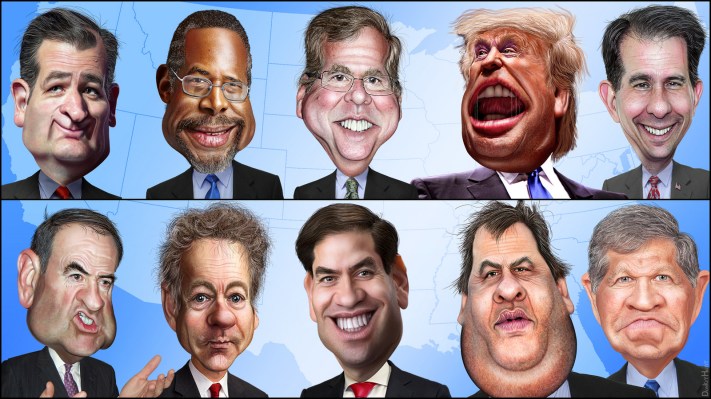Despite the unprecedented growth of the tech sector, none of the 2016 presidential candidates has really stood out when it comes to technology and entrepreneurship policy.
Given the importance of many of the issues that the startup community faces, this is really unfortunate. But not necessarily surprising. Let’s start with the data:
-
New firms – startups – are responsible for net new job growth in the United States.
-
Each new tech job is responsible for 4.3 local non-tech jobs.
-
High-tech startups, and their attendant job creation, exist all over the country.
All of which is to say, this community is of vital importance to our national economy. And it faces real problems that the next president will have to address. So where are the candidates?
For starters, many of these tough issues split our traditional notions of the two-party system. Take for instance the gig economy, which has pitted traditional unions against many newer tech firms. Or cybersecurity, which seemingly puts privacy advocates, law enforcement, and tech companies at odds.
And that’s not to mention the very real lack of diversity in this industry, which continues to be a serious problem without a real and promising solution in sight.
Even though allowing for more high-skilled immigration reform or doing a better job at educating American youth in STEM fields actually does have the potential to unlock scores of diverse talent for American companies, there has been little appetite in D.C. to do anything about it.
It’s true; none of these issues has an easy answer. They are hard problems that need real solutions. Many of those solutions will require bucking traditional political supporters (not to mention funders). Policymakers will have to make tough – and sometimes, unpopular – calls.
It’s only going to get harder as every company transitions to becoming a tech company, or at least a company that increasingly relies on technology.
We’ve already seen that start to happen, as traditional retailers have online stores, coffee shops and hotels provide Internet access, and banks implement online banking services. And that’s not to mention how much of people’s personal and social lives have moved online.
These issues will affect every aspect of our society and economy and more stakeholders will be at the table, demanding answers.
So you can understand why the candidates have attempted to evade these questions so far. But we should not let them do that anymore.
Election season presents an important opportunity to push candidates to go on the record, which may prove valuable for years to come.
Take then-candidate Obama, who in 2007 promised he would support net neutrality, saying unequivocally: “I am a strong supporter of Net neutrality.”
Fast forward to 2015, when President Obama followed through on that promise, strongly and publicly signalling his support for net neutrality in a moment now largely considered to be one of the most crucial in the leadup to the FCC’s historic action.
It’s not all up to the candidates, of course. This community of entrepreneurs must do its job, too. We must remind the candidates that our community – which was largely responsible for stopping SOPA and for sending 4 million comments to the FCC in support of net neutrality – is listening for answers. And voting.
